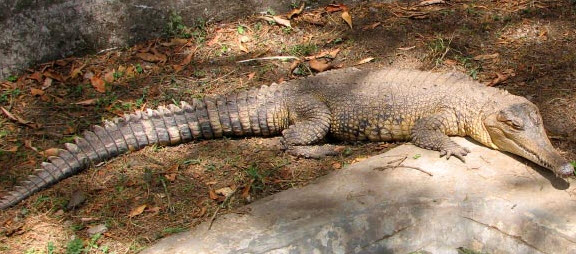Two species of African Slender-Snouted Crocodile – Mecistops cataphractus

Image credit: Leyo
An international team of researchers from the University of Florida and the SFM Safari Gabon have through DNA Testing discovered that the African Slender-Snouted Crocodile ( Mecistops cataphractus) is actually two different species.
The team was lead by Dr Austin and was through Field studies and DNS testing able to discover that Central African populations of the slender-snouted crocodile do not share the same genetic or specific physical features as populations in West African. Based on the DNA evidence they think that the two species has been developing independently from each other from a joint ancestor for the last 6.5 – 7.5 million years.
Dr Austin of the University of Florida points out that “The results emphasize how little is known about crocodile biogeography, or how species are distributed geographically over time, in Western and Central Africa”
The discovery is very important from a conservation standpoint. Both species now needs to be protected. Something that is not an easy task in a poor area of Africa where crocodile is a common and popular type of bush meat. The West African slender-snouted crocodile is in especially dire need of protection and breeding projects. It is likely among the 3 or 4 most endangered crocodiles in the world. Successful conservation projects in the past like the one for alligators do however show how quickly crocodiles can rebound if given the protection they need.
Dr Matthew Shirley, has the following to say: “Now that researchers know the West African slender-snouted crocodile is not the same species as its Central African cousin that changes its standing,”
She also goes on to say that: “If we remove them from the ecosystem, then there may be profound effects on fisheries resources in the future,” refering to the crocodlies role as a predator at the top of the food chain in Africa.
Read More:
Shirley MH et al. 2013. Rigorous approaches to species delimitation have significant implications for African crocodilian systematics and conservation. Proc. R. Soc. B, vol. 281, no. 1776; doi: 10.1098/rspb.2013.2483